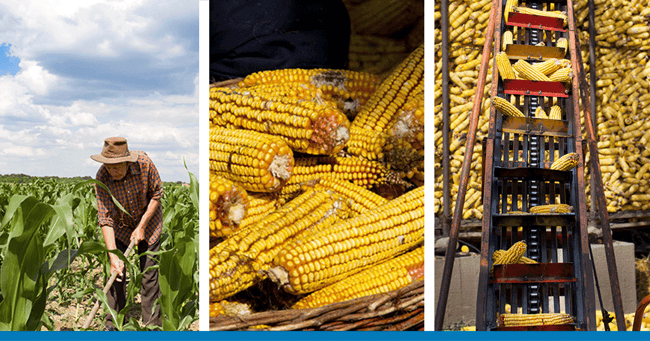Empowered by access to information, modern consumers are becoming increasingly selective about the provenance of foodstuffs. Find out how food traceability can help you differentiate your business. Read the article.

When consumers pay a premium for certified organic produce and packaged food and beverage products, they should feel confident that they’re getting what they pay for: a product free from synthetic fertilisers, pesticides, antibiotics, growth regulators, and genetically-modified organisms. There is also an underlying ethical assumption that those revenues are going to farmers engaged in sustainable agricultural practices that promote ecological balance and conserve biodiversity. Products sold as organic must, by law, follow certain standards – both European and national – and must be regularly inspected and certified by approved bodies. At a global level, many countries have regulatory requirements like those in the EU and there are formal agreements covering trade in organic products between these countries.
However, because organic and eco-labelled food products command a higher price, instances of food fraud, such as adulteration and mislabelling, are becoming more commonplace. In the organic food market segment, where it is not easy to identify which products are organic or produced using conventional means, trust in a brand name is paramount. What’s more, failure to enforce standards casts a shadow of doubt over the term ‘organic’, which should be synonymous with authenticity. To avoid eroding the grounds for premium pricing in the organic food category, more and more agriculture businesses are adopting traceability systems to avoid products falsely sold as ‘organic’ in the supply chain and the adverse effect these products have on consumer demand.
Staying Competitive and Relevant
The problem is amplified with imported products that involve intermediaries, some of whom are looking to make economic gains by deliberately mislabelling foods as organic and selling them at a premium. One example is the 2016 to 2017 shipment of over 16 metric tonnes of soybeans that found their way to California from Ukraine via Turkey.
What started out as conventionally-farmed, pesticide-treated soybeans were sold as ‘organic’, which saw the consignment’s value increase by nearly £3 million. This wasn’t an isolated incident either, two further shipments of corn and soybeans revealed similar findings. Moreover, because these imported crops were largely destined to become animal feed, there was a cascading effect on the supply chain. Eggs, dairy, meat, and poultry raised on this conventional feed was now falsely labelled organic as well.
Meanwhile, retailers are finding themselves at risk as well. While consumers increasingly scrutinise labels promoting ‘farm-to-fork’ sourcing, not all retailers can verify organic products back to their point of origin. While tier 1 and some of tier 2 suppliers may be known to the retailer, view of tier 3 suppliers and beyond is often obscured.
Tackling the Root of the Problem
In April 2017, imports of organic products into the EU became subject to a new EU electronic certification system. As well as the goal of reducing organic food fraud, the addition of import certificates to the existing Trade Control and Expert System facilitates trade by enabling partners and competent authorities to obtain information on the movement of their consignments easily.
Forward-thinking companies, however, look beyond the ‘stick’ of regulation to the ‘carrot’ of consumer trust and are actively seeking ways to reduce their susceptibility to organic food fraud and protect their brand. They need to account for every part of the production process, which means farming practices, distribution paths, storage procedures, and product delivery must all be made visible to business managers.
External traceability is vital to validating the presence of attributes such as organic certification for the agro-food sector, which includes animal feeds. This requires all businesses in the supply chain to systematically link the physical flow of materials and products with the flow of information about them.
However, many traceability systems today were only designed for internal purposes, providing a one-up, one-down view for the company using that system. Many companies, particularly those that do business with large retailers that impose strict standards, will quickly find themselves outgrowing manual methods or standalone programs for batch or lot tracking. At this tipping point, an enterprise resource planning (ERP) solution that supports strong batch or lot traceability features becomes essential.
A Fresh Focus on Traceability
With traceability-focused programs, the organic product’s batch or lot number follows it from seed to table. By capturing the organic certification data as part of lot tracking, organic status can be tracked through the supply chain. For example, a bottle of certified organic wine can be traceable back to the exact vineyard from which its grapes were harvested. An organic apple can be traced back to the farm where it was grown, and it should even be possible to pinpoint the exact orchard from which it was picked.
Shoppers are becoming increasingly savvy about what they eat and how it’s raised; supply chain traceability is what empowers consumers to trust certified organic brands. When there is an opportunity to help the consumer understand where their food is coming from, businesses can further differentiate their products. Making an investment in traceability technology will bear fruit in the form of customer trust and brand loyalty.
Vision33's ERP Solution for Food and Beverage Manufacturers and Distributors
With Vision33’s ERP solution for Food and Beverage Manufacturers and Distributor electronic on-demand traceability is available as standard. At the point of purchase, the organic status is captured and recorded against the batch/lot as part of the quality assurance process. This information is fully available throughout the logistics flow in the warehouse, and used as selection criteria for picking the correct product to meet customer requirements.
To find out more about how Vision33 can help you achieve end-to-end traceability to maintain the safety and integrity of your products read the Food Safety, Labelling, And Traceability – Is Your Business Ready? brochure and learn more about the benefits of using a traceability system.

